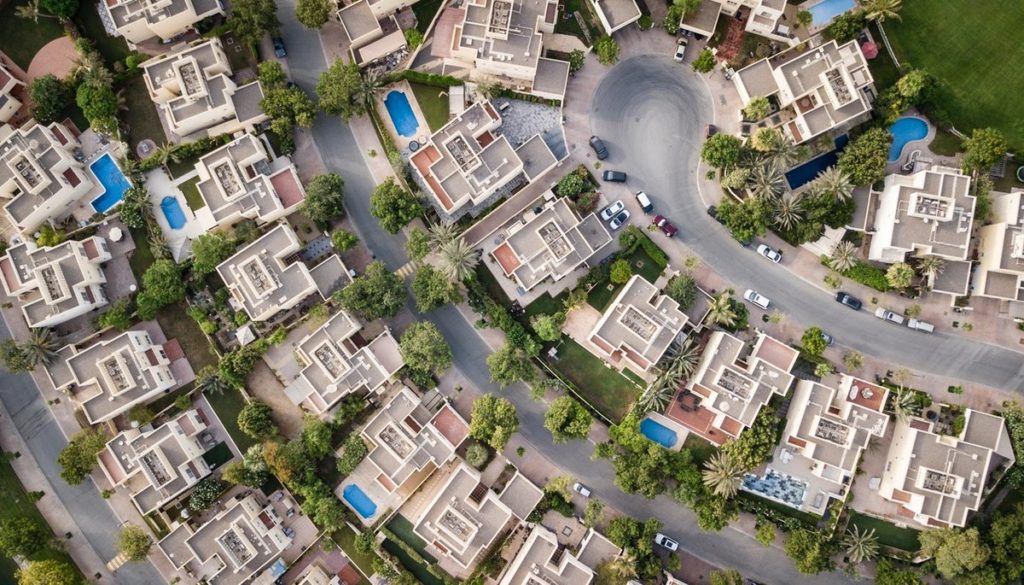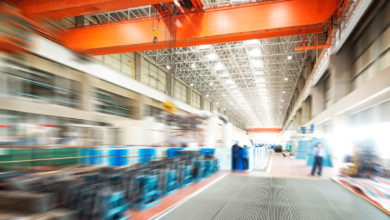
6 Essential Things to Consider When Converting a Property for Commercial Use
- #1 - Obtain a change of use permission
- 2 - Is the building suitable for conversion?
- 3 - Hunt for the right house
- 4 - Building location perks
- 5 - Crack the building code
- 6 - Increase security
Converting a house or any other type of residential building into a commercial property puts you in the spotlight of different logistical decisions.
There are a few things you should keep in mind, such as planning permission, building regulations, and security, but also the safety and health of the occupants.
Many of these regulations will come in the form of legal requirements, and you need to tackle them one by one, so you can legalise your conversion:
#1 – Obtain a change of use permission
Possibly the most difficult step in converting a building for commercial use is getting the local council’s permission for a change of use.
So, the question of planning permission is determined by which use your property falls into and what you want to convert it for.
This way, for example, converting a property from a sports retail to a travel agency usually does not require permission, while going from a residential zoning to a commercial one might be a somewhat more challenging endeavor.
2 – Is the building suitable for conversion?

Before you proceed with buying a property or signing a lease, make sure it will suit your business needs.
For example, if you need to take down several walls to make a shop floor space, you need someone to survey the property and say the current layout will allow the conversion. In other words, whether your plan interferes with central supports or load-bearing walls.
You also need to find out more about the surrounding area, as local infrastructure, utilities and traffic might make it difficult for you to carry out the construction work.
Concluding that the building you already invested in isn’t suitable for your conversion plans can be a major financial blunder, so be sure to do all the checks before you sign any papers.
3 – Hunt for the right house
Family homes are often converted into business venues, such as professional counseling offices, retail shops, and different services.
Houses have a familiar layout and often provide a low-cost alternative to office buildings and ready-made commercial spaces. Also, houses can often be found in busy downtown and main street locations, which are more suitable for businesses than families.
On top of it, with the help of experienced real estate development experts, you can increase equity by purchasing a house in which you can also live one day.
Older houses that have solid bones and character can be very attractive in this sense, as communities often prefer to preserve historic downtown structures than see them pulled down.
4 – Building location perks

Due to the traffic flow they encounter, town and city centres are highly suitable locations for converting residential properties into commercial ones.
Finding the optimal locality is essential, as it solves important issues such as the available amenities, multiple transport routes, security, and easy access.
If the property has a small driveway or no parking options at all, the location needs to provide abundant parking for the employees and customers.
In some localities, you’ll need to obtain community approval. Basically, you need to prove to your new neighbours that your converted commercial property will cause minimal disruptions to normal life and local amenities.
5 – Crack the building code
When it comes to converting and renovating commercial properties, building codes are mainly focused on structural adequacy, fire safety, and accessibility. Your architect can evaluate all these aspects and offer valuable advice.
Apart from inspecting the adequacy of the building’s mechanical properties, they will inspect the plumbing and electrical system. Some municipalities will require that you install an alarms system and sprinklers.
Depending on the nature of your business, heavy equipment or machines may be required to strengthen the structure. It might also mean that you solve any accessibility issues such as wheelchair access from the parking lot and access throughout the building. The modifications might require wider doorways, ramps, modified signage, and adapted restrooms.
6 – Increase security

A property that serves as a hub of commercial business has different security needs than a residential building.
As most businesses are closed and empty during the night, you need to increase security while the building is unguarded and unoccupied, especially if your company has valuable stock or a safe on the premises.
While roller blinds and shutters can protect your business from opportunity burglary and vandalism, consider installing grilles on windows and security doors on all entrances.
In addition to having an efficient alarm system coupled with a CCTV and motion-actuated lights, you mustn’t forget to apply for a comprehensive insurance policy that protects both the building and its contents.
Although the whole process of conversion might seem overwhelming, keep in mind that commercial conversions are fairly common and often prove successful for small businesses.
About the author: Mike Johnston is an avid freelance writer and blogger. He is a regular contributor to numerous blogs and online magazines, where he writes about home improvement (his specialty!), interior design, real estate, green living, and other topics. Mike’s goal is to create interesting and compelling content and then share it throughout the online community.






